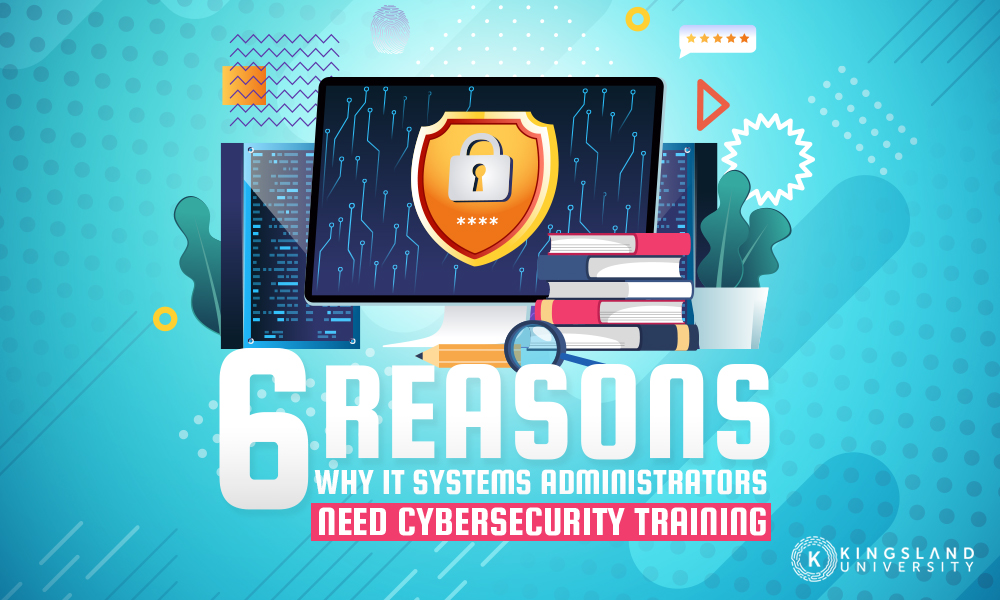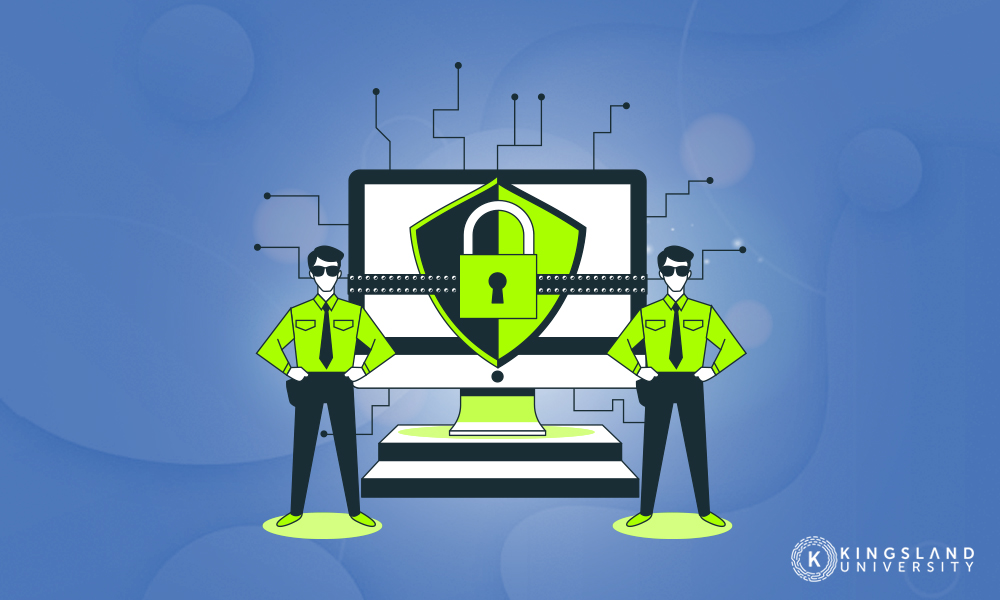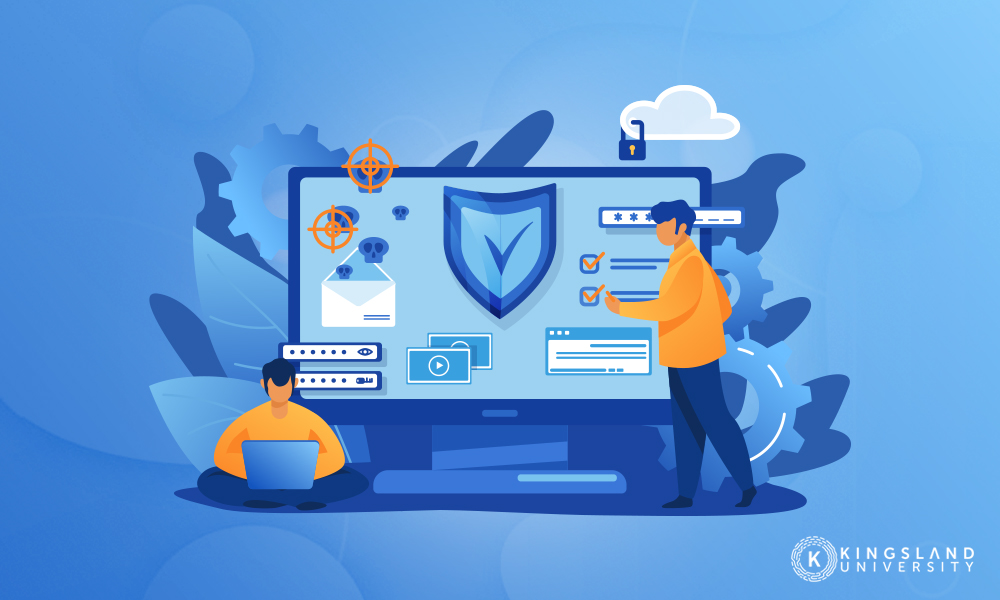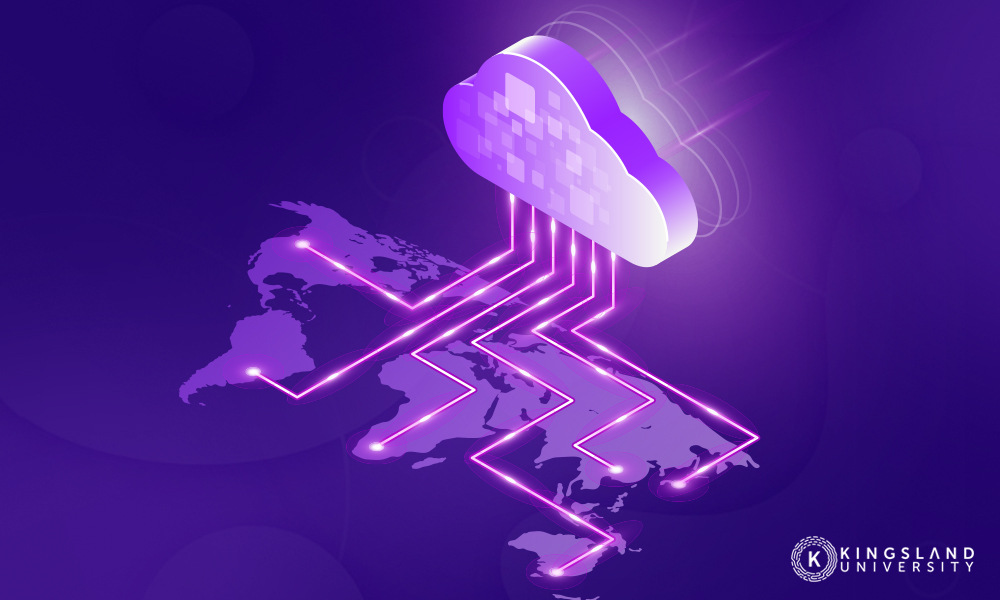
The computer industry has a plethora of professional positions that need to be filled, one of the most important of which is the IT systems administrator. However, in line with its significance in a professional setting, IT systems administrators need an in-depth understanding of many security systems. In fact, the position even entails a degree of cybersecurity knowledge despite the misconception that the two realms are separate from one another. Determining which skill set is most important for an IT systems administrator to have to succeed can be tricky, but we are hoping this article helps to clarify some of the confusion.
What is an IT Systems Administrator?
Information technology (IT) systems administrators are an indispensable part of the computer industry, serving as one of the most important positions to ensure the smooth operation of workplace technology. IT systems administrators manage and maintain the computer systems used in office environments, often assigned to perform day-to-day maintenance and installation of equipment throughout the office. When an employee finds themselves dealing with a server error or hardware issue, the IT systems administrator is called to resolve the issue so the employee can get back to work.
The IT systems administrator is also responsible for installing everything from laptops and desktops to servers and cybersecurity software on those same devices. They are also responsible for creating and maintaining local-area networks (LAN) and wide-area networks (WAN) that keep those devices in communication despite their physical distance. They also install routers, modems, and firewalls, and format network interface cards (NIC) for internet and data transmission.
IT system administrators also make recommendations to the company’s IT policies to minimize potential future issues by offering their professional insight on the matter. They also use this insight to advise managers on practices and habits to optimize computer networks and new software to keep infrastructure up to date with contemporary issues. To help expedite the implementation of their measures, they are often vested with the right to purchase equipment with a strict budget set forth by the company.

IT system administrators often serve as leaders to lower-level IT technicians and supervise their practices to ensure cohesion and integrity of the system. They are equally responsible for ensuring that the company’s systems not only function but do so securely. IT system administrators often advise the company on what security software to implement and how to reinforce habits to employees to minimize the risk of viral infection or hacking.
With such a heavy burden of security placed upon them, it benefits all working in the field to have insight into some of the linchpin skills of cybersecurity that a professional possesses to make an informed decision for the good of their employers.
Reason #1: Networks
Part of an IT systems administrator’s duties is creating networks that allow office devices to communicate effectively. These networks need to transfer data across multiple machines while also allowing remote access to sensitive proprietary information. One of the biggest digital threats that exist is network hackings to get this information for personal gain.
One of the roles of cybersecurity professionals is to defend networks from these hostile attacks and ensure the security and integrity of the data within. Network security is divided into three major sections:
- Physical Network Security: Physical network protection involves actual hardware blocks that prevent unauthorized personnel from accessing the network. The physical access points to a network, such as routers, can be protected with biometric locks to ensure anyone attempting to access the router is stopped ahead of time.
- Technical Network Security: Technical network protection involves defending the network and data from being remotely accessed from unauthorized inquiries. This form of protection usually encompasses the implementation of passwords to regulate who has access and firewalls to prevent hack attempts.
- Administrative Network Security: Probably the most critical form of protection for an IT systems administrator, administrative network protection is all about authentication protocols. Implementing such authenticators requires alterations to a network’s infrastructure that only IT personnel or contracted cybersecurity agents can perform.

While most of these security measures can be implemented by a contracted cybersecurity professional or firm, having an IT systems administrator who is already intimately familiar with the network and its infrastructure learn the necessary skills to implement them helps remove the middleman. In addition to the costs saved, it permits a shorthand that an outside agent would lack since the network administrator would know it inside and out and create shortcuts for security enforcement and enhancement as needs evolve. As a standard form of protection taught to aspiring cybersecurity professionals, IT systems administrators who undergo cybersecurity training are put at a distinct advantage.
Reason #2: Phishing
While it may seem silly, phishing scams are a major issue that can severely set a company back a pretty penny if anyone falls for them. Phishing scams involve attempts to steal sensitive information from people via fraudulent communication. This communication is usually carried out from spoofed e-mail addresses from actual companies or agents, text messages, or even phone calls that all direct the prospective victim to a fake website. This website is designed to emulate, as best as possible, an officially sanctioned website for a reputable source.
The victim is instructed to input personal information into this website so that the scammer can access the personal data and accounts of the victim. These scams are, as of 2020, the most common kind of cyberattack in the world due to the COVID-19 pandemic causing everyone to rely on their digital presence to function.

In the professional world, phishing attempts are still a threat to office settings. The average employee might be prone to genuinely believing the spoofed e-mail addresses to be genuine. However, a trained eye can identify these fraudulent e-mails and other communications and recognize invalid links to false web addresses.
For cybersecurity professionals, it is not difficult to implement countermeasure programs that can defend against unrecognized or viral links. IT systems administrators are responsible for the implementation of filters and firewalls that serve as vital boons to the security of a network or employee data. A cybersecurity-trained administrator would be able to tailor more advanced filters that would better protect their coworkers from these scams, which is important given these scams can cost companies up to $4,000,000 in revenue when even a single employee falls victim to them.
Reason #3: Job Security
Cybersecurity is an ever-evolving field that requires constant adaptation and education to keep up with new threats that present themselves every year. Due to this constant need, cybersecurity has a sustainable rate of employment that many other positions in the same field lack.
According to the U.S. Bureau of Labor Statistics, IT systems administrators enjoy a 4% job growth rate between 2019 and 2029. While that 4% increase is faster than the national average, it is still minimal. Add to that fact that IT systems administrators can be easily swapped out for a new employee with a similar understanding of network infrastructure and the general computer knowledge expected of the position.

The U.S. Bureau of Labor Statistics also shows that those in the cybersecurity field enjoy a whopping 31% job growth rate, which is far superior to the 4% associated with IT systems administration. By combining the skills of cybersecurity training with the skills expected of an IT systems administrator, they become a far more desirable employee with more to offer their employer.
While job security is more of a personal need than a professional one, it is still advisable to keep it in mind since job security helps with continued survival in a financially fueled world like the United States of America.
Reason #4: Recovery
The worst possible day for any employee in a computer-oriented field is when you suffer a security breach and your systems are compromised. Such a breach places productivity at a standstill as attempts to get back to operational capacity and determining what was lost in the breach become a priority. For an IT systems administrator, this becomes a hassle as you wait on security verification before restoring the system to operational status for employees to access and continue their tasks for the day.

These security checks are performed by cybersecurity personnel so the vulnerabilities in the system’s firewalls and security can be patched to prevent future incursions from occurring. This must happen before an IT administrator is permitted to verify the infrastructure’s integrity and restore any damaged aspects. With a cybersecurity-trained administrator, operations resume faster as one individual can verify the security issues, patch them, and then verify the infrastructure all in one sitting. The faster everything is restored and operational, the more effectively the company runs and ensures no real hazard to the company’s financial situation beyond whatever damage was incurred by the breach itself.
Reason #5: The Gap
One of the biggest issues in the cybersecurity field is that there is a rather large gap between the need for professionals in the field and the number of professionals available. This gap means that companies are more vulnerable than they ever want to be as they scramble for more professionals to help defend against external threats. While the number of IT systems administrators is not exactly rife with potential candidates either, there is less of a shortage for administrators than for cybersecurity professionals.

Recent data has found that there are currently 715,000 cybersecurity professionals in the United States as of 2019, leaving 314,000 unfilled positions out of the 3,500,000 that exist. However, it was predicted that the number of unfilled positions has jumped to 3,500,000, with an appropriate increase in total positions.
This talent shortage means that those with cybersecurity training become extremely coveted additions to any workforce. So much so that systems administrators with cybersecurity training can serve as excellent dual role employees to bridge that gap and earn themselves a solid and secure place in the realm of computer professionals. Like the 3rd reason we have listed, this one offers more of a personal benefit than a professional one.
Reason #6: The Cloud
A terrifying truth of the modern world is that everything we do via technology eventually finds its way to the cloud. The cloud is a digital repository of personal data and information that can be accessed from any device so long as you have the password associated with your personal information. Systems administrators are tasked with maintaining and overseeing the cloud storage of their companies to ensure the data remains intact and is managed to be accessible to the right employees simply and effectively. In some areas, cloud-based storage is replacing system administrators entirely in some responsibilities.

The cloud is one of the most common targets of hack attempts since much of our personal data and sensitive images are stored there for convenience. This includes proprietary information of companies that could cost them millions if they ever fell into the wrong hands. Ultimately, this means that the cloud needs to be well defended against these attempts. By fortifying your skillset with cybersecurity training, you stand to serve as this defender by:
- Patching vulnerabilities to the cloud service.
- Installing firewalls.
- Adding strong password protection to accounts.
- Implementing two-factor authentication.
All of these ensures that the only people able to access the cloud account are the people authorized to do so.
The Point
IT systems administrators are invaluable and indispensable roles to all computer-centric companies and positions in the world. However, the position itself is not as difficult to fill as some might think. Anyone with an understanding of computer science and the ability to maintain digital infrastructure while also installing and maintaining hardware can fill such a position. That is not to discount just how difficult it can be to meet those requirements, but only to illustrate that the demand is more easily met and less sustainable than cybersecurity professions.

Cybersecurity professionals serve as the first and last line of defense against hack attempts, viral assaults, and any other digital threat a company might face. They create defenses, patch software vulnerabilities, and enhance the security of other employees against threats they might otherwise succumb to without oversight from a trained eye. By marrying the skills of a cybersecurity professional with those of a system administrator, we see the apex employee of the intelligent technology division of any company.
Even without the employment benefits, adding cybersecurity training to your repertoire as a systems administrator helps you perform better and maintain more of the infrastructure without having to outsource to another employee or contractor.


